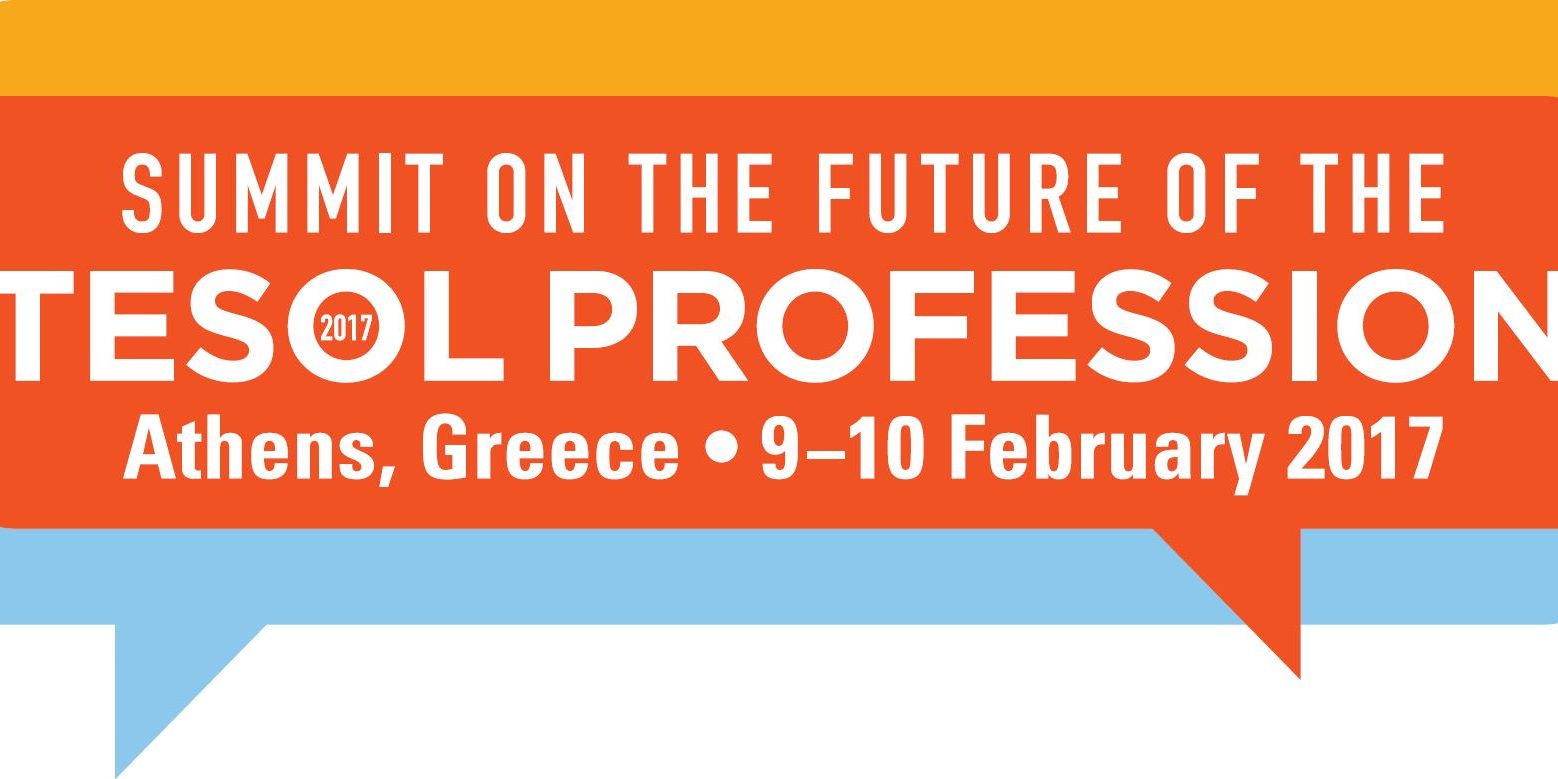by Deborah J. Osborne
The first article in this series presented a brief summary of the first two themes, Futurology and English in Multilingualism, with this article addressing Reimagining English Competence and the Profession as a Change Agent.
Reimagining English Competence
- Inquiry: Anne Katz teaches online courses for the MA TESOL program at The New School in NYC. Her presentation centered on what it means to “know” English and the growing importance of learning content as well as language (i.e. English for Specific Purposes, as well as English for Academic Purposes).
- Professionalism: Ahmar Mahboob, Associate Professor of Linguistics at the University of Sydney, Australia, began his talk with the observation that science (i.e. biology, medicine) has developed and greatly changed in the last two centuries, while language teaching remains mired in the ideas of the past. He spoke of the need to reconceptualize language: to reach beyond thinking of “English” as an entity tied to particular communities, but rather as the province of the user whose proficiency is a product of context, as well as need.
- Equity: Giselle Lundy Ponce, ELL policy and research specialist with the American Federation of Teachers, questioned whether a language must be taught by a native speaker. She maintained that if a teacher is well trained and credentialed, they are capable of teaching a language. She also challenged us to find an alternative to the term “non-native speaking teacher of English.” (By the way, suggestions during the discussion and Q&A session included “English teaching professional” or, if reference to language seemed necessary, “multilingual English teaching professional.”)
The Profession as a Change Agent
- Inquiry: Constant Leung, Professor of Educational Linguistics at King’s College, University of London, U.K., stated that “inquiry is a principle for our profession.” He maintained that our professional knowledge is dynamic and expanding- embracing such areas as content teaching, ways of teaching, and changing standards and values. He talked about orienting teacher- training programs to prepare TESOL teachers to initiate and respond to change and to better meet the differing needs and contexts of learning of our students.
- Professionalism: Misty Adoniou, Associate Professor of Literacy and Language Education at the University of Canberra, Australia, outlined three levels at which TESOL practitioners should be active: micro – the classroom level and teachers’ associations; meso- at the institutional level; and macro – at the society level. She urged active participation and taking every opportunity to reach out to wider audiences, to advocate for our profession and our students.
- Equity: Franklin Téllez, president of the Nicaraguan Association of Teachers of English, stressed collaboration and investment in professional development to support and empower teachers to help them become agents of change.
The presentations outlined above were stimulating and thought-provoking; the discussions that they sparked at each table were engaging and fruitful. Many searching questions were borne of them, engendering yet more discussion, rich with examples, differing perspectives, and ideas on how to translate talk into action. In fact, one result of the Summit will be a working document to be presented at TESOL 2018. This paper will capture the input of all Summit participants (our table discussions were submitted in note form after each session); it is intended to distill what we learned, and express a vision of a future for our profession encompassing teaching practices, policy, and approaches to research. As Dudley Reynolds, President of TESOL, put it, TESOL was founded fifty years ago. We’ve reached middle age. The time is ripe to reflect upon where we are, and project where we would like to be.
All in all, the Summit was an invaluable experience, one which I feel privileged to have attended. Accustomed as I was to viewing our profession in the North American context, I came away with a broader perspective, feeling much more a part of a worldwide, international body of colleagues. Our varied backgrounds and experiences unite rather than divide. Whether it be ourselves, our profession, our students’ experience, or the world, we pursue a common goal and shared purpose – to continually improve and make a difference.
Editor’s Note: Recorded sessions from the TESOL Summit are available at http://www.tesol.org/summit-2017/themes.
Deborah Osborne completed her Ph.D. in Linguistics at Simon Fraser University, Vancouver, Canada. She has taught Linguistics, ESL, and English composition in Canada, Papua New Guinea, Hawai’i, Iowa, Missouri, and Oklahoma. She is active in TESOL and NAFSA, and is a trained and experienced CEA reviewer. Currently she serves as Director of the Applied English Center at the University of Kansas.








